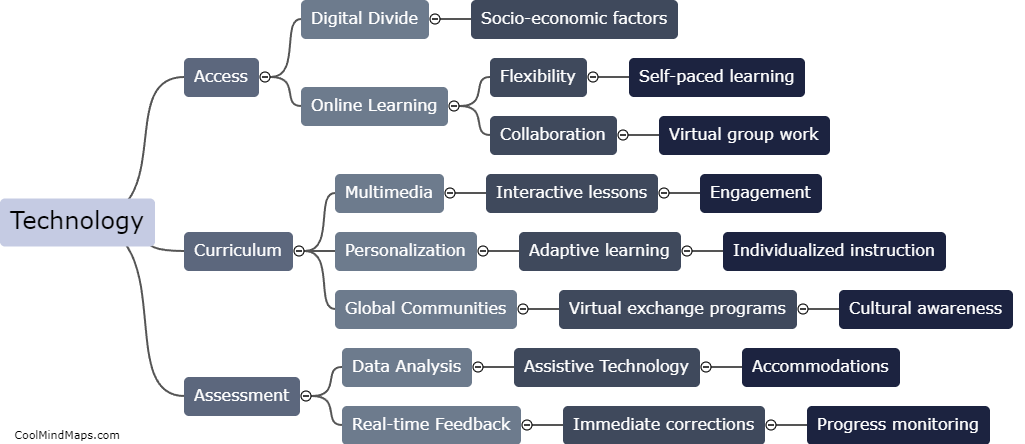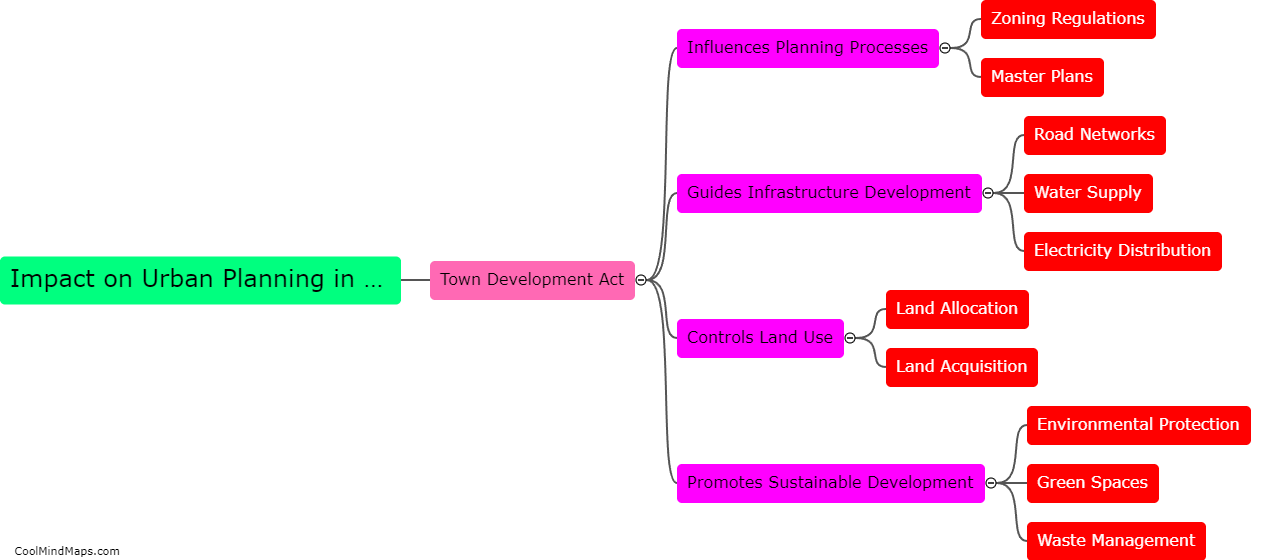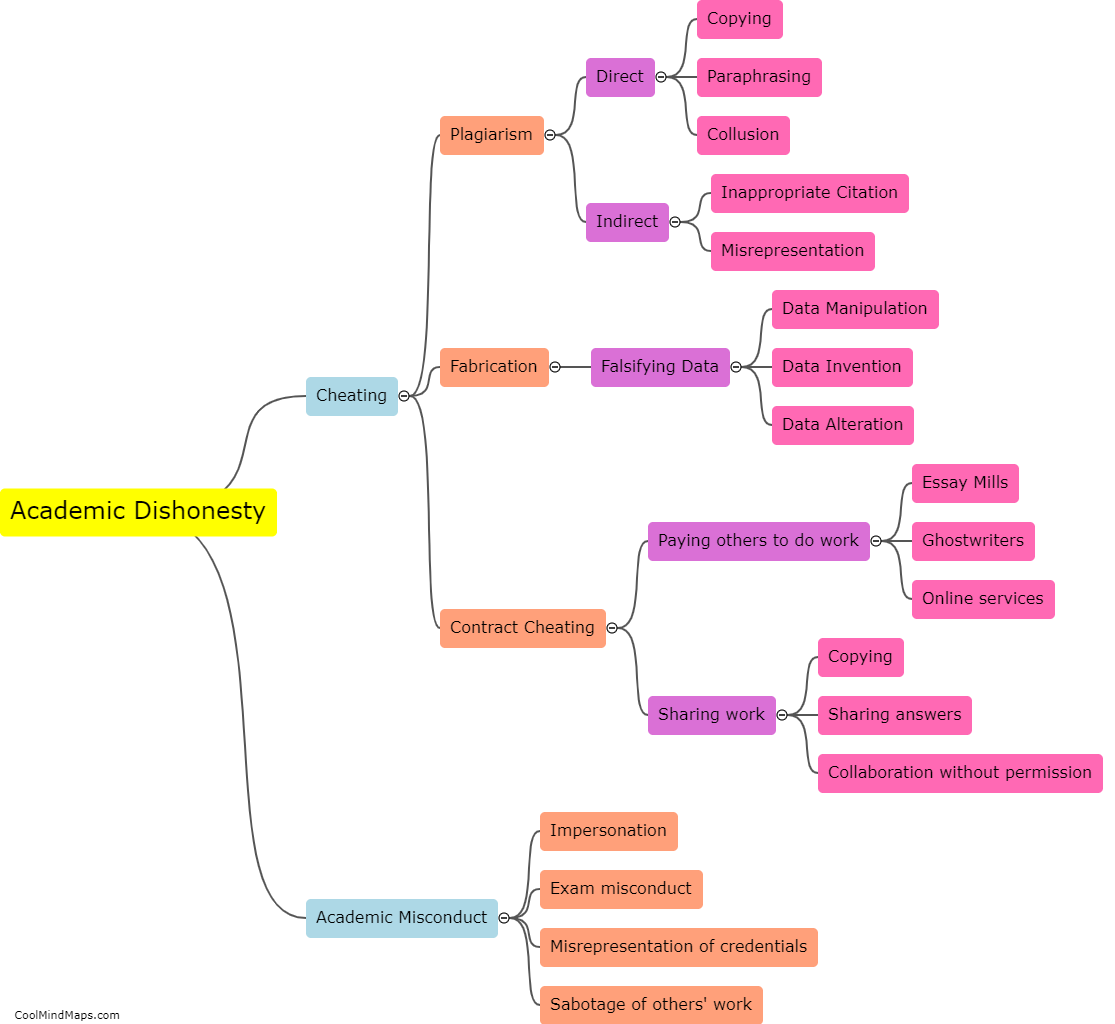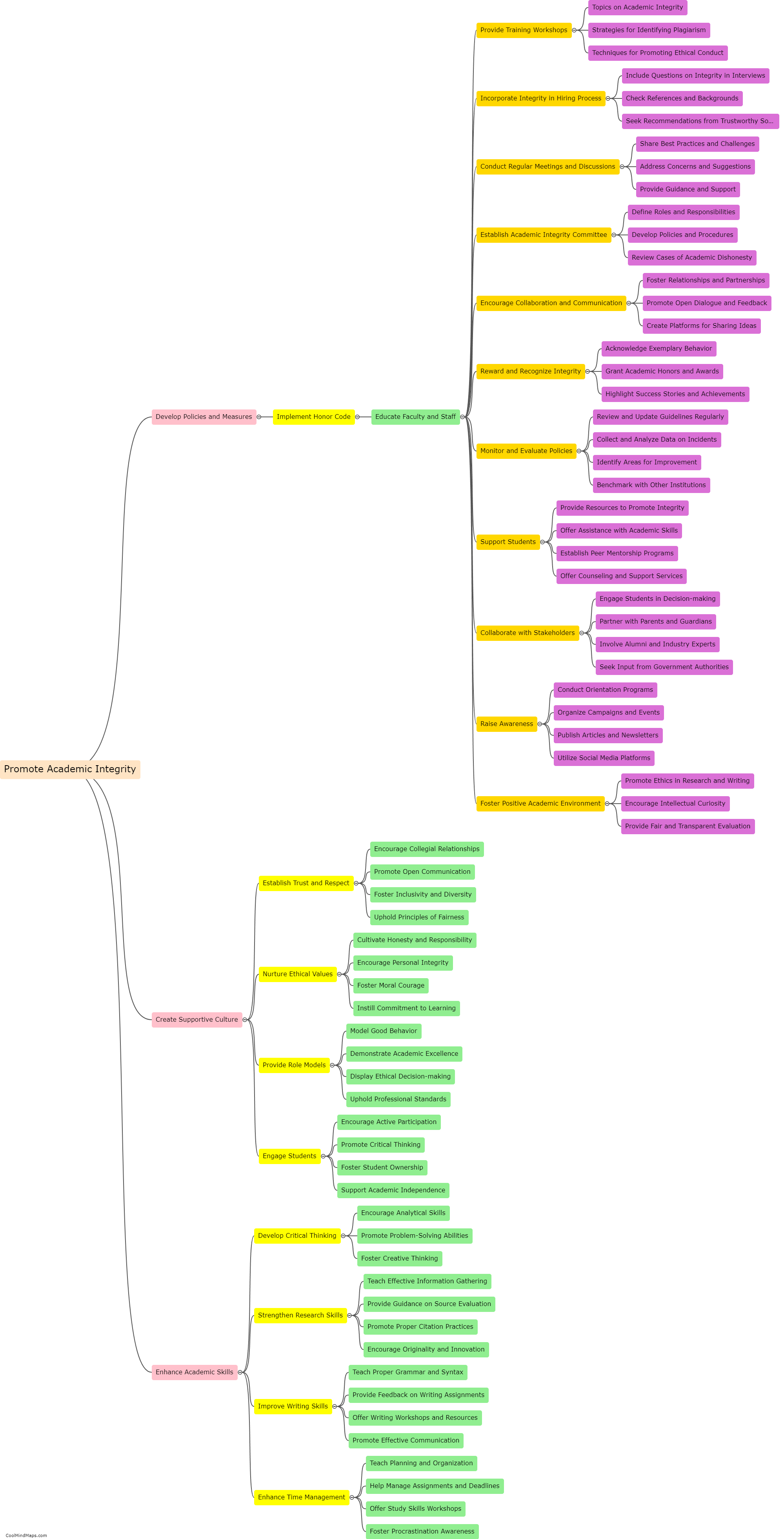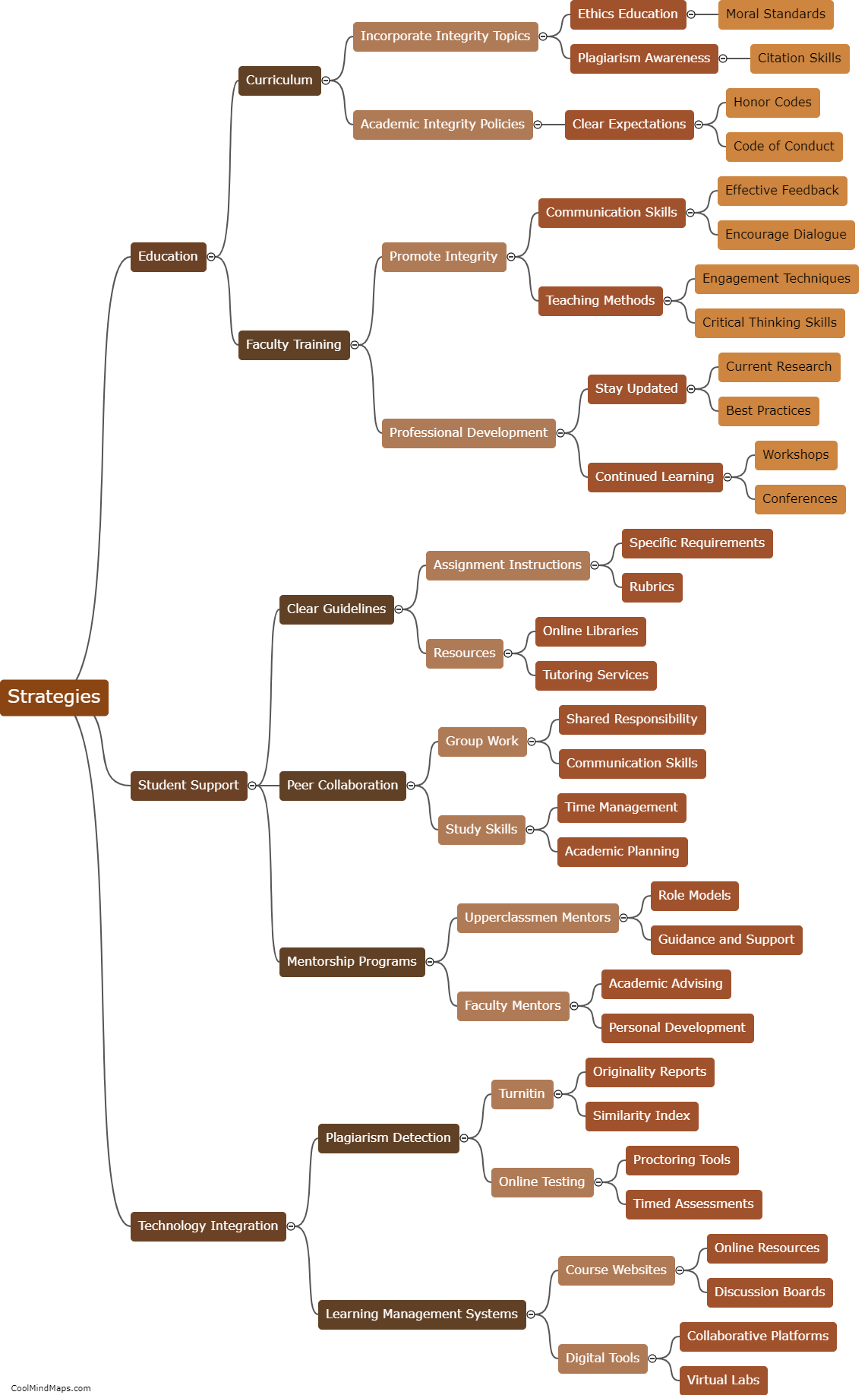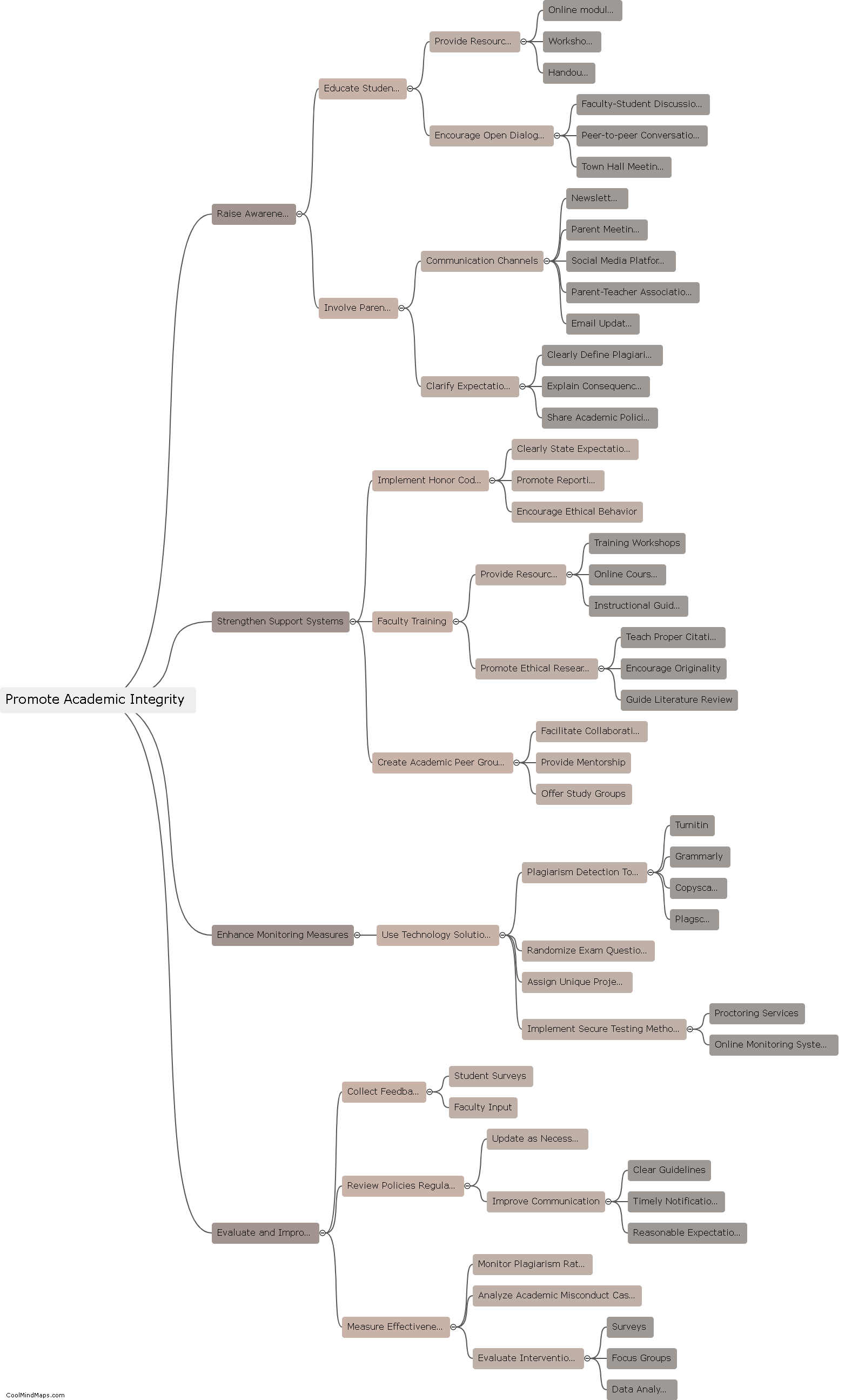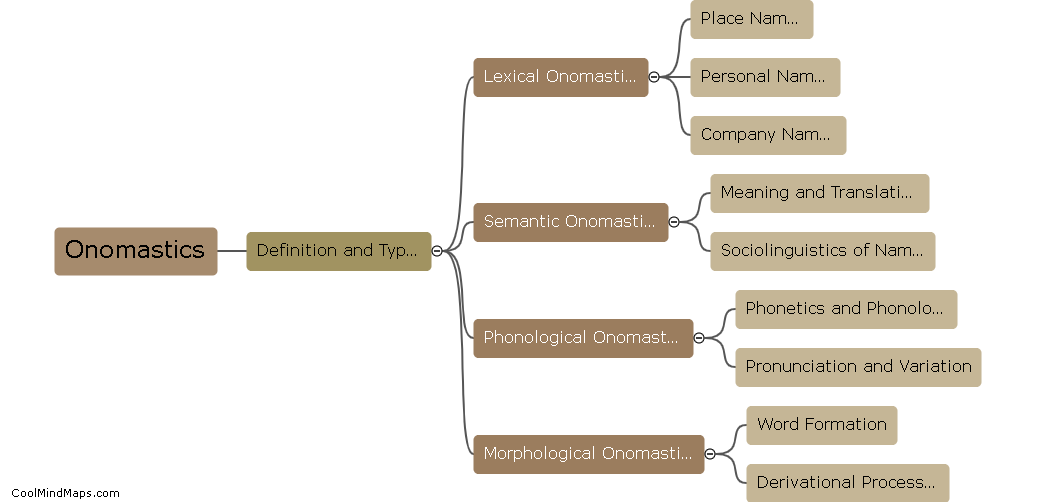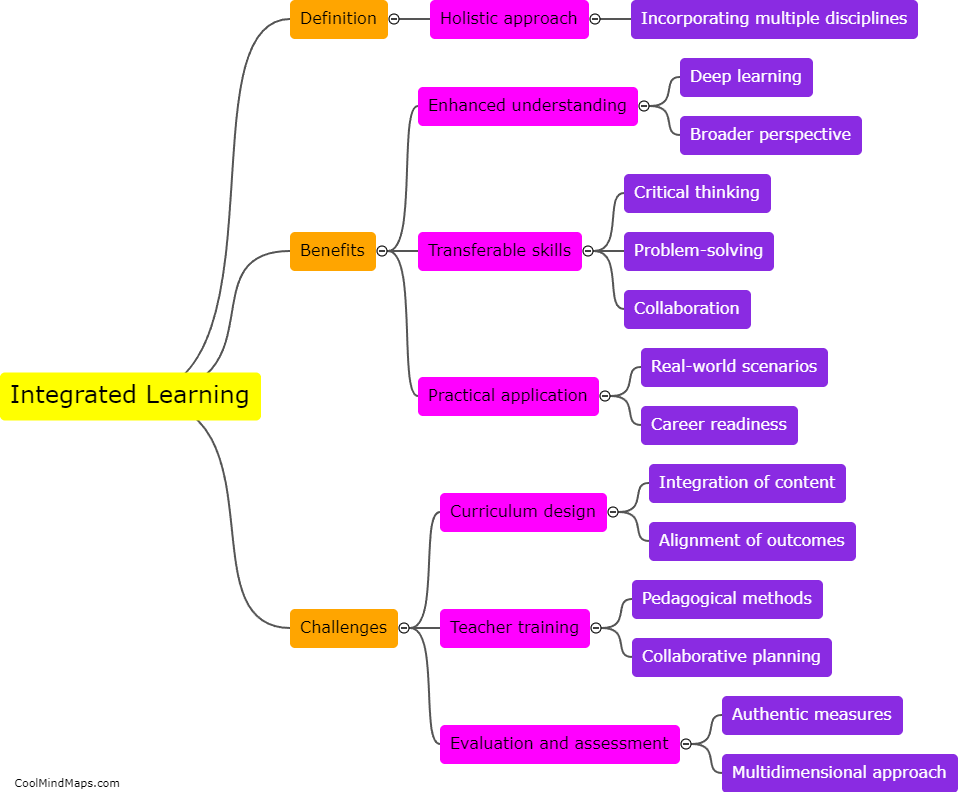What are the common forms of academic dishonesty?
Academic dishonesty refers to unethical or dishonest behavior in an academic setting. Common forms of academic dishonesty include plagiarism, cheating, unauthorized collaboration, and fabricating information. Plagiarism involves presenting someone else's ideas, words, or work as your own without proper citation. Cheating can take various forms, such as copying from another student during exams or using unauthorized materials. Unauthorized collaboration refers to working together on an assignment or exam when it is explicitly prohibited. Fabricating information refers to creating or altering data or results to support false claims. These forms of academic dishonesty not only undermine the credibility of the individual but also the integrity of the academic institution as a whole. Therefore, it is crucial for students and educators to promote and uphold academic honesty.
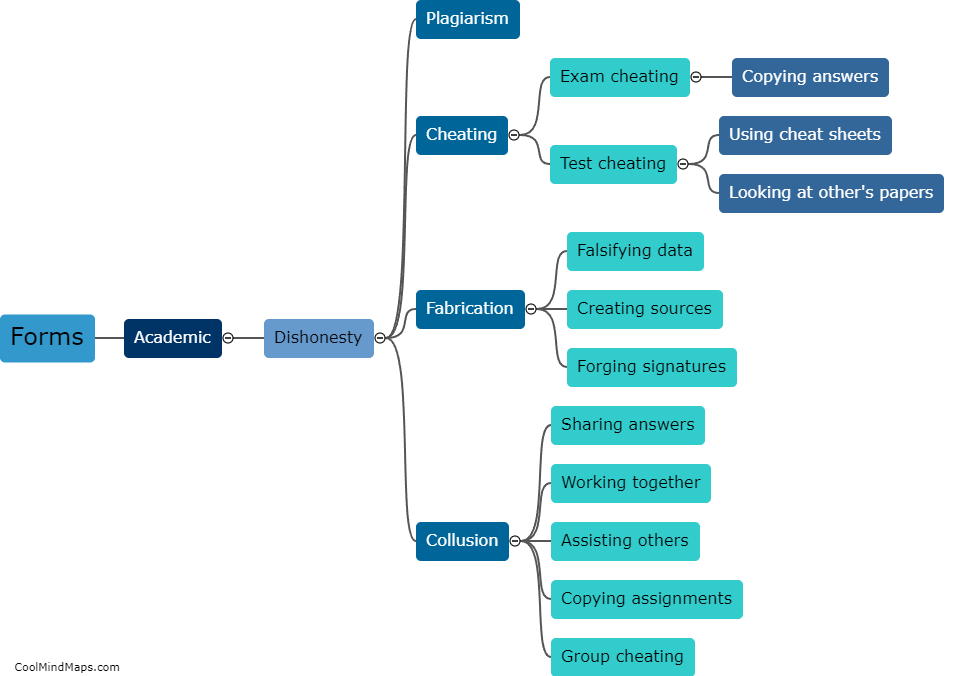
This mind map was published on 8 November 2023 and has been viewed 93 times.
